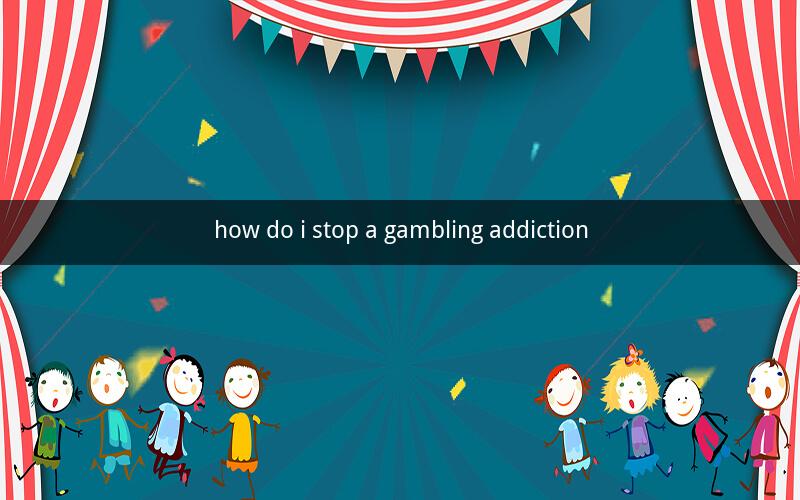
Table of Contents
1. Understanding the Problem
2. Recognizing the Signs of a Gambling Addiction
3. Seeking Professional Help
4. Developing a Support System
5. Identifying Triggers and Avoiding Them
6. Creating a Budget and Sticking to It
7. Using Self-Exclusion Programs
8. Engaging in Alternative Activities
9. Setting Goals and Celebrating Progress
10. Staying Committed to Change
1. Understanding the Problem
Gambling addiction is a complex issue that affects individuals of all ages, backgrounds, and socioeconomic statuses. It is characterized by an inability to control gambling behavior, despite negative consequences. Understanding the nature of this addiction is the first step towards overcoming it.
2. Recognizing the Signs of a Gambling Addiction
Identifying the signs of a gambling addiction is crucial for seeking help. Common signs include:
- Preoccupation with gambling, often at the expense of other responsibilities or interests.
- Needing to gamble more money to achieve the same thrill.
- Feeling restless or irritable when attempting to stop gambling.
- Using gambling as a way to escape problems or negative emotions.
- Lying to friends and family about gambling activities.
- Borrowing money or selling possessions to fund gambling.
3. Seeking Professional Help
Professional help is essential for overcoming a gambling addiction. Therapists, counselors, and addiction specialists can provide guidance, support, and evidence-based treatment methods. Cognitive-behavioral therapy (CBT) is particularly effective in treating gambling addiction by helping individuals identify and change harmful thought patterns.
4. Developing a Support System
Building a support system is crucial for maintaining sobriety. This can include friends, family, support groups, and mentors. Sharing experiences and receiving encouragement from others who have overcome similar challenges can be incredibly empowering.
5. Identifying Triggers and Avoiding Them
Identifying triggers is essential for preventing relapse. Triggers may include certain places, people, or situations that make gambling more appealing. Avoiding these triggers is crucial for maintaining sobriety.
6. Creating a Budget and Sticking to It
Creating a budget and sticking to it can help prevent financial strain, which is a common consequence of gambling addiction. Set a limit on the amount of money you can afford to lose and stick to it.
7. Using Self-Exclusion Programs
Self-exclusion programs are designed to help individuals avoid gambling venues. By enrolling in these programs, you can legally ban yourself from entering casinos, racetracks, and other gambling establishments.
8. Engaging in Alternative Activities
Finding alternative activities to replace gambling can help fill the void left by this behavior. Consider hobbies, exercise, and socializing with friends and family.
9. Setting Goals and Celebrating Progress
Setting goals and celebrating progress can provide motivation and a sense of accomplishment. Set realistic goals and reward yourself for reaching them.
10. Staying Committed to Change
Staying committed to change is essential for overcoming a gambling addiction. It is a journey that requires patience, persistence, and resilience. Remember that relapse is a part of the process, but it does not define your ability to overcome this addiction.
Questions and Answers
1. What are the main signs of a gambling addiction?
- Preoccupation with gambling, needing to gamble more money, feeling restless when attempting to stop, using gambling as an escape, lying about gambling, and borrowing money to fund gambling.
2. How can I find a therapist or counselor specializing in gambling addiction?
- Contact local mental health clinics, support groups, or ask for referrals from your primary care physician.
3. What is cognitive-behavioral therapy (CBT) and how is it used to treat gambling addiction?
- CBT is a type of therapy that helps individuals identify and change harmful thought patterns. It is used to treat gambling addiction by helping individuals develop healthier coping mechanisms and reduce the urge to gamble.
4. How can I build a support system to help me overcome my gambling addiction?
- Reach out to friends, family, support groups, and mentors. Share your experiences and seek encouragement from others who have overcome similar challenges.
5. What are some common triggers for gambling addiction?
- Triggers may include certain places, people, or situations that make gambling more appealing, such as casinos, racetracks, or social gatherings involving gambling.
6. How can I create a budget to prevent financial strain due to gambling addiction?
- Set a limit on the amount of money you can afford to lose and stick to it. Allocate funds for essential expenses and save the remainder.
7. What is a self-exclusion program and how can I enroll in one?
- A self-exclusion program is designed to help individuals avoid gambling venues. To enroll, contact the gambling establishment or state gambling commission and provide your personal information.
8. What alternative activities can I engage in to replace gambling?
- Consider hobbies, exercise, and socializing with friends and family. Find activities that bring you joy and fulfillment.
9. How can I set goals and celebrate progress in overcoming my gambling addiction?
- Set realistic goals and reward yourself for reaching them. Celebrate milestones and acknowledge your progress along the way.
10. What should I do if I relapse and start gambling again?
- Relapse is a part of the process, but it does not define your ability to overcome your addiction. Reflect on what led to the relapse, seek support, and commit to getting back on track.